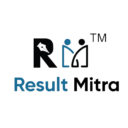Relevance for UPSC Papers
- GS Paper II: Issues related to Health, Government Policies, and Regulatory Frameworks.
- GS Paper III: Science & Technology (Biotechnology, Microbiome Research), Public Health, Antimicrobial Resistance (AMR).
- Essay Paper: Health and Development; Mental Health in India.
Context
- While Antimicrobial Resistance (AMR) is widely recognized as a global public health hazard, its mental health implications remain underexplored.
- The gut–brain axis, which connects gastrointestinal health with neurological functions, is increasingly linked to anxiety, depression, and cognitive decline.
- India, being one of the largest consumers of antibiotics globally, faces a dual crisis of AMR and mental health vulnerabilities.
BodyAntibiotic Consumption in India
- Over-the-counter sales, self-medication, and weak regulations drive excessive and unregulated antibiotic use.
- India recorded 267,000 AMR-related deaths in 2021; projected to reach 1.2 million by 2030 (IHME data).
- Nearly 50% of antibiotics consumed are unapproved formulations (Lancet 2022).
Gut–Brain Axis and Mental Health
- The gut microbiome influences production of neurotransmitters (serotonin, dopamine) essential for mood, stress regulation, and cognition.
| Impacts of Antimicrobial Resistance (AMR) Health Consequences *Leads to infections that are difficult or impossible to cure. *Rise of drug-resistant pathogens like MDR-TB and MRSA. *Increases risks in surgeries, organ transplants, cancer therapy, and childbirth due to untreatable infections. Economic Consequences Higher treatment costs because patients need stronger, second-line medicines. Longer hospital stays and repeated treatments. Loss of productivity from prolonged illness. The World Bank estimates global losses up to $100 trillion by 2050. Social Consequences Worsens poverty and inequality as poor families face unaffordable medical expenses. Erodes public confidence in healthcare systems. Security Consequences Poses a major public health security challenge, comparable to pandemics. Resistant microbes spread easily across borders, making it a global crisis. India is particularly at risk due to unregulated antibiotic use and high consumption rates. |
- Antibiotic overuse disrupts microbial diversity (dysbiosis) → linked to anxiety, depression, cognitive impairment.
- Research (NIMHANS, AIIMS) highlights strong associations between gut health and psychiatric disorders.
Emerging Field: Psychobiotics
- Probiotics and prebiotics show promise in alleviating psychiatric symptoms.
- Probiotics = Good bacteria introduced into the gut.
- Prebiotics = Food that nourishes the good bacteria already present.
- A 2020 Frontiers in Psychiatry meta-analysis found probiotics significantly reduced depressive symptoms in mild to moderate cases.
- Indian diets (curd, idli, dosa, pickles) already include natural probiotics, offering a culturally relevant solution.
Challenges
- Low awareness of gut–brain linkages among citizens.
- Easy availability of antibiotics without prescription, especially in rural/semi-urban areas.
- Economic incentives for over-prescription by private practitioners and pharmacies.
- Weak regulatory enforcement of prescription-only rules.
- Mental health infrastructure gaps in India.
Way Forward
Public Health Campaigns
- Integrate gut–brain health literacy in National Health Mission and Ayushman Bharat.
- School curricula on microbiome science; media campaigns on dangers of misuse.
Regulatory Reforms
- Strict enforcement by CDSCO: prescription-only antibiotic access.
- Penalties for non-compliance; stronger surveillance systems (INSAR).
Medical Practice Reforms
- Embed antibiotic stewardship in medical training.
- Encourage holistic psychiatric evaluation including gastrointestinal assessment.
- Incorporate nutritional counselling as a core element of treatment.
Research & Innovation
- Promote microbiome research specific to Indian populations.
- Explore psychobiotic therapies as affordable mental health interventions.
Conclusion
India stands at a critical juncture where the overuse of antibiotics not only accelerates antimicrobial resistance but also silently erodes mental health resilience. Recognizing the gut–brain axis as a vital determinant of wellbeing demands a paradigm shift in health policy. Through education, regulatory reforms, interdisciplinary collaboration, and traditional knowledge, India can mitigate this dual crisis and build a robust framework for both physical and mental health security.
| Prelim practice question Q. Consider the following statements regarding the link between Antibiotic misuse and Mental Health in India: 1-Disruption of gut microbial diversity (dysbiosis) due to antibiotic overuse is associated with anxiety, depression, and cognitive impairment. 2-The term psychobiotics refers to antibiotics that reduce psychiatric symptoms by suppressing harmful gut bacteria. 3-According to a 2020 Frontiers in Psychiatry study, probiotic supplementation was linked to reduction in depressive symptoms, particularly in mild to moderate cases. Which of the above statements is/are correct? A. 1 and 2 only B. 2 and 3 only C. 1 and 3 only D. 1, 2 and 3 Answer: C (1 and 3 only) Mains practice question Q. “The overuse of antibiotics in India has created a dual crisis of antimicrobial resistance and deteriorating mental health.” Discuss the link between antibiotic misuse and the gut–brain axis. Suggest suitable policy measures to address this challenge. (250 words) |
Source: The Hindu
